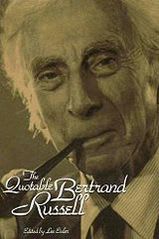
The American philosopher and logician Willard Quine said Russell's work represented the greatest influence on his own work.Russell's first mathematical book, An Essay on the Foundations of Geometry, was published in 1897. This work was heavily influenced by Immanuel Kant. Russell soon realized that the conception it laid out would have made Albert Einstein's schema of space-time impossible, which he understood to be superior to his own system. Thenceforth, he rejected the entire Kantian program as it related to mathematics and geometry, and he maintained that his own earliest work on the subject was nearly without value.Interested in the definition of number, Russell studied the work of George Boole, Georg Cantor, and Augustus De Morgan, while materials in the Bertrand Russell Archives at McMaster University include notes of his reading in algebraic logic by Charles S. Peirce and Ernst Schröder.[38] He became convinced that the foundations of mathematics were to be found in logic, and following Gottlob Frege took an logicist approach in which logic was in turn based upon set theory. In 1900 he attended the first International Congress of Philosophy in Paris, where he became familiar with the work of the Italian mathematician, Giuseppe Peano. He mastered Peano's new symbolism and his set of axioms for arithmetic. Peano defined logically all of the terms of these axioms with the exception of 0, number, successor, and the singular term, the, which were the primitives of his system. Russell took it upon himself to find logical definitions for each of these. Between 1897 and 1903 he published several articles applying Peano's notation to the classical Boole-Schröder algebra of relations, among them On the Notion of Order, Sur la logique des relations avec les applications à la théorie des séries, and On Cardinal Numbers.Russell eventually discovered that Gottlob Frege had independently arrived at equivalent definitions for 0, successor, and number, and the definition of number is now usually referred to as the Frege-Russell definition. It was largely Russell who brought Frege to the attention of the English-speaking world. He did this in 1903, when he published The Principles of Mathematics, in which the concept of class is inextricably tied to the definition of number.[39] The appendix to this work detailed a paradox arising in Frege's application of second- and higher-order functions which took first-order functions as their arguments, and he offered his first effort to resolve what would henceforth come to be known as the Russell Paradox. Before writing Principles, Russell became aware of Cantor's proof that there was no greatest cardinal number, which Russell believed was mistaken. The Cantor Paradox in turn was shown (for example by Crossley) to be a special case of the Russell Paradox. This caused Russell to analyze classes, for it was known that given any number of elements, the number of classes they result in is greater than their number. This in turn led to the discovery of a very interesting class, namely, the class of all classes. It contains two kinds of classes: those classes that contain themselves, and those that do not. Consideration of this class led him to find a fatal flaw in the so-called principle of comprehension, which had been taken for granted by logicians of the time. He showed that it resulted in a contradiction, whereby Y is a member of Y, if and only if, Y is not a member of Y. This has become known as Russell's paradox, the solution to which he outlined in an appendix to Principles, and which he later developed into a complete theory, the Theory of types. Aside from exposing a major inconsistency in naive set theory, Russell's work led directly to the creation of modern axiomatic set theory. It also crippled Frege's project of reducing arithmetic to logic. The Theory of Types and much of Russell's subsequent work have also found practical applications with computer science and information technology.
Russell continued to defend logicism, the view that mathematics is in some important sense reducible to logic, and along with his former teacher, Alfred North Whitehead, wrote the monumental Principia Mathematica, an axiomatic system on which all of mathematics can be built. The first volume of the Principia was published in 1910, and is largely ascribed to Russell. More than any other single work, it established the specialty of mathematical or symbolic logic. Two more volumes were published, but their original plan to incorporate geometry in a fourth volume was never realized, and Russell never felt up to improving the original works, though he referenced new developments and problems in his preface to the second edition. Upon completing the Principia, three volumes of extraordinarily abstract and complex reasoning, Russell was exhausted, and he felt his intellectual faculties never fully recovered from the effort. Although the Principia did not fall prey to the paradoxes in Frege's approach, it was later proven by Kurt Gödel that neither Principia Mathematica, nor any other consistent system of primitive recursive arithmetic, could, within that system, determine that every proposition that could be formulated within that system was decidable, i.e. could decide whether that proposition or its negation was provable within the system (Gödel's incompleteness theorem).
Russell's last significant work in mathematics and logic, Introduction to Mathematical Philosophy, was written by hand while he was in jail for his anti-war activities during World War I. This was largely an explication of his previous work and its philosophical significance.
Russell continued to defend logicism, the view that mathematics is in some important sense reducible to logic, and along with his former teacher, Alfred North Whitehead, wrote the monumental Principia Mathematica, an axiomatic system on which all of mathematics can be built. The first volume of the Principia was published in 1910, and is largely ascribed to Russell. More than any other single work, it established the specialty of mathematical or symbolic logic. Two more volumes were published, but their original plan to incorporate geometry in a fourth volume was never realized, and Russell never felt up to improving the original works, though he referenced new developments and problems in his preface to the second edition. Upon completing the Principia, three volumes of extraordinarily abstract and complex reasoning, Russell was exhausted, and he felt his intellectual faculties never fully recovered from the effort. Although the Principia did not fall prey to the paradoxes in Frege's approach, it was later proven by Kurt Gödel that neither Principia Mathematica, nor any other consistent system of primitive recursive arithmetic, could, within that system, determine that every proposition that could be formulated within that system was decidable, i.e. could decide whether that proposition or its negation was provable within the system (Gödel's incompleteness theorem).
Russell's last significant work in mathematics and logic, Introduction to Mathematical Philosophy, was written by hand while he was in jail for his anti-war activities during World War I. This was largely an explication of his previous work and its philosophical significance.










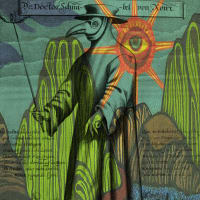



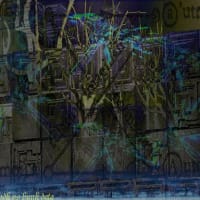

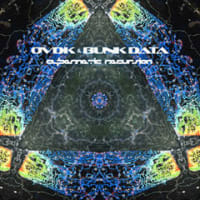
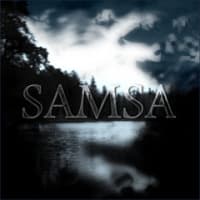
※コメント投稿者のブログIDはブログ作成者のみに通知されます